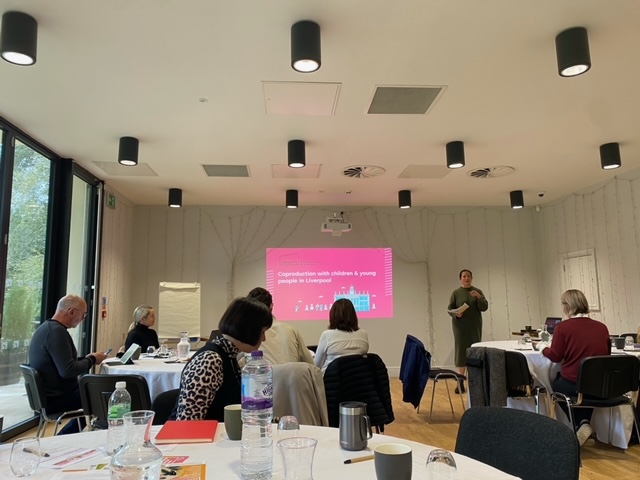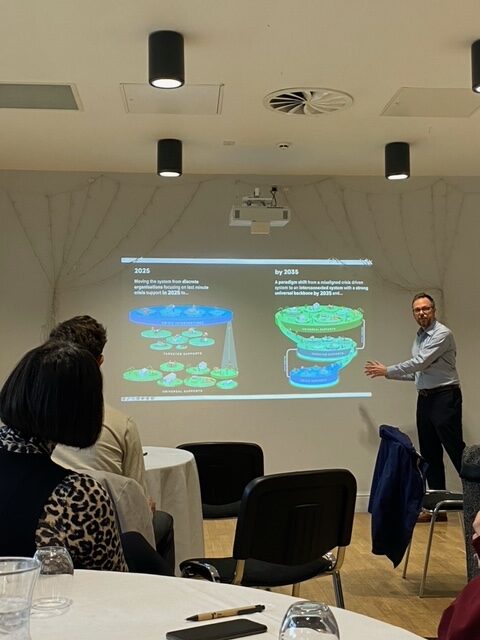Mobilising action to build a better future for local children and young people
- November 1, 2024
- Categories: Children's, Client News, Partner Insights, Stay in the Loop



The best start in life comes from a good education, a safe, stable home and being part of a community that supports our children and young people.
That’s the vision of Liverpool’s Children and Young People’s Partnership (LCYP), a partnership made up of Liverpool City Council, Alder Hey, Merseycare, the University of Liverpool, Merseyside Police, local primary and secondary schools and third sector organisations.
Last week, Capacity was invited to attend a follow-up to the initial Liverpool Children and Young People Partnership visioning session that we supported over the Summer, which you can read about here.
The second session, held on 15th October at The Reader in Calderstones Park brought the Partnership back together to consider some of the most pressing issues affecting children’s health and well-being in the Liverpool City Region and how we can become accountable in mobilising collective action to better support local children and young people.
1. Addressing Health Inequalities
W.H. Duncan, Chair in Health Inequalities, and Professor of Public Health and Policy at the University of Liverpool, David Taylor-Robinson spoke to the Partnership about addressing inequalities in child health.
The session focused on findings in public health data, particularly in relation to the interdependencies between poverty, inequality and poor health outcomes – underscoring the need for early intervention. Some of the research shared was deeply upsetting, if sadly familiar to many attending the session and highlighted the stark link between higher levels of deprivation, increased infant mortality rates and lower life expectancy.
The consensus was that collective action is needed. We need to act early, on time, and together to tackle these systemic issues.
2. Moving Beyond Conversation to Action
A recurring theme across the conversations was the urgency to transition from discussions to tangible action.
The group expressed a desire for the Partnership to evolve into a structured and action-oriented collaboration. This requires clear accountability, shared goals, and a focus on sustainable actions that address the actual needs of children and families. The Partnership’s success hinges on ensuring that it provides real value to stakeholders and avoids the risk of stalling.
3. Strengthening Co-production Efforts
Our Director, Emma Lord, led a session on how the partnership can best utilise co-production approaches to centre the voice and needs of children and young people in our work.
The table discussions clearly highlighted the need to leverage existing strengths and co-production resources within the partnership. There are already loads of great examples of participation and co-production happening across the city region. The challenge lies in tapping into this collective knowledge, sharing best practices, and ensuring that insights are used to better support children and young people.
Frontline workers, community organisations, and families should be at the heart of this collaborative effort.
4. Building a Child-Friendly City
The UNICEF initiative to make the Liverpool a child-friendly city is central to the Partnership’s role.
The focus areas include health, safety, leisure, and inclusion. The session reiterated that this ambition must be embedded into the Partnership’s broader work, ensuring that children’s voices are not just heard but acted upon. Clear frameworks for accountability and data-driven decision-making are essential for long-term success.
Again, we were struck by the cross-sector passion and drive to better support children and young people across our region. The conviction that we want to see a brighter future for our children and young people was unmistakable across all our conversations.
The discussions across the session highlighted the importance of moving from dialogue to delivery, strengthening co-production efforts, and making children’s health, well-being and safety a central focus of decision-making. As the Partnership progresses, the key will be to ensure that we centre the voices of children, young people and their families, actions are taken, and accountability is maintained.
This session marked a promising step towards creating a healthier, safer and more inclusive environment for children and young people in the Liverpool City Region.